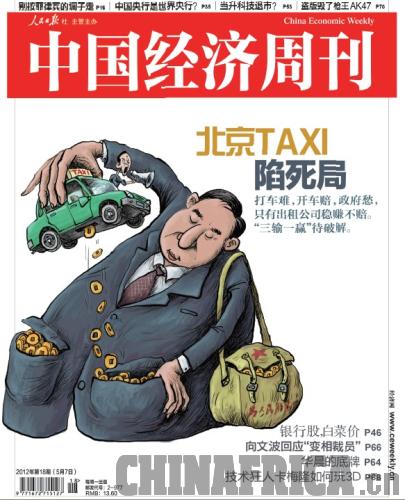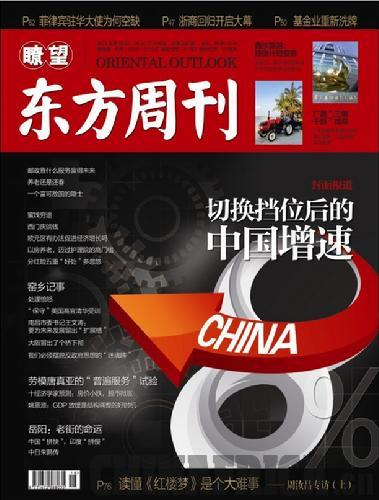| 
More Understanding Needed
Southern Metropolis Weekly
May 14, 2012
Doctor-patient tension in China has been getting more severe in recent years, with a string of shocking murders triggered by medical disputes. A typical case happened in March, 2012 when a medical intern was stabbed to death in Harbin, northeast China's Heilongjiang Province. Currently, doctors' professional ethics and practices are being questioned, with criticism leveled at things like bad service attitude, accepting bribes, and abuse of medical examinations.
However, in this issue Southern Metropolis Weekly reveals doctors' suffering and unjust treatment in the doctor-patient relationship. According to doctors interviewed, there is no institution to restrict those doctors who are inclined to accept bribes and to encourage doctors to realize their value. They said the rewards they got from their work did not equate to their effort and the value of their professional skills. Another problem of the current medical system is hospitals' dependence on selling drugs, and a lack of government funding to maintain their operation causes abuse of medication and examinations.

Taxi Stalemate
China Economic Weekly
May 7, 2012
Catching a taxi in Beijing has become so difficult that it arouses regular complaints from residents. On the other side of the coin, taxi drivers are angry about over-loaded work with low wages. With the government not playing a role to resolve this issue, the only winners are taxi companies who have little risks but big profits.
Wang Jun, a law professor with China University of Political Science and Law, believes the control on the taxi numbers and merger of taxi companies has led to a monopoly in public resources, enabling the taxi companies to put their interests above those of the public. He added that getting companies to control the taxi sector is against principles of the market economy, has excluded competition and thus caused the current stalemate. To root out the problem, taxi companies' monopoly has to be eradicated.
University Cooperation
The Beijing News
May 17, 2012
Two top Chinese universities, Renmin University of China and Beijing Foreign Studies University, joined hands to nurture high-quality students by signing a strategic cooperation agreement in Beijing on May 15. A first in China's higher education history, this cooperation would make it possible for the two universities to share faculties and other teaching resources. However, similar cooperation in recent years mostly started well but never continued. There are many difficulties. For example, to share courses, universities have to build up one system so that students from both campuses can have a platform to choose what they want.

Economy Slow Down
Oriental Outlook
May 17, 2012
After projecting the GDP growth rate at around 8 percent for seven consecutive years, China cut the growth target to 7.5 percent in 2012. China faces economic downturn risks this year. But setting a lower growth rate is designed to reform the economy and realize high-quality development over a longer period, Premier Wen Jiabao said at this year's sessions of the National People's Congress.
Yao Jingyuan, a former chief economist at the National Bureau of Statistics of China, believes that reasons for the downturn include the government's cancelation of incentive policies used to handle the economic crisis in 2008, decrease in exports because of the bleak global economy and problems of an unbalanced and unsustainable development mode of China's economy being exposed.
Crackdown on Illegal Foreigners
Beijing Daily
May 18,2012
Beijing recently announced a three-month-long crackdown on foreigners living or working illegally in the city. The move is said to have resulted from the incident of a British man who allegedly tried to rape a woman in Beijing in May. Although it is unclear whether the campaign is directly linked with the incident, efforts to punish foreigners illegally entering, living and working in China are urgently needed. Due to China's rapid economic growth, the capital is attracting an increasing number of foreigners seeking job opportunities. However, some foreigners have no formal occupation, no stable income, or no fixed address. Some even committed crimes, threatening people's safety and harming the integrity of Chinese law. Such a crackdown sends a message that China will not tolerate criminals no matter they are Chinese or foreigners. |